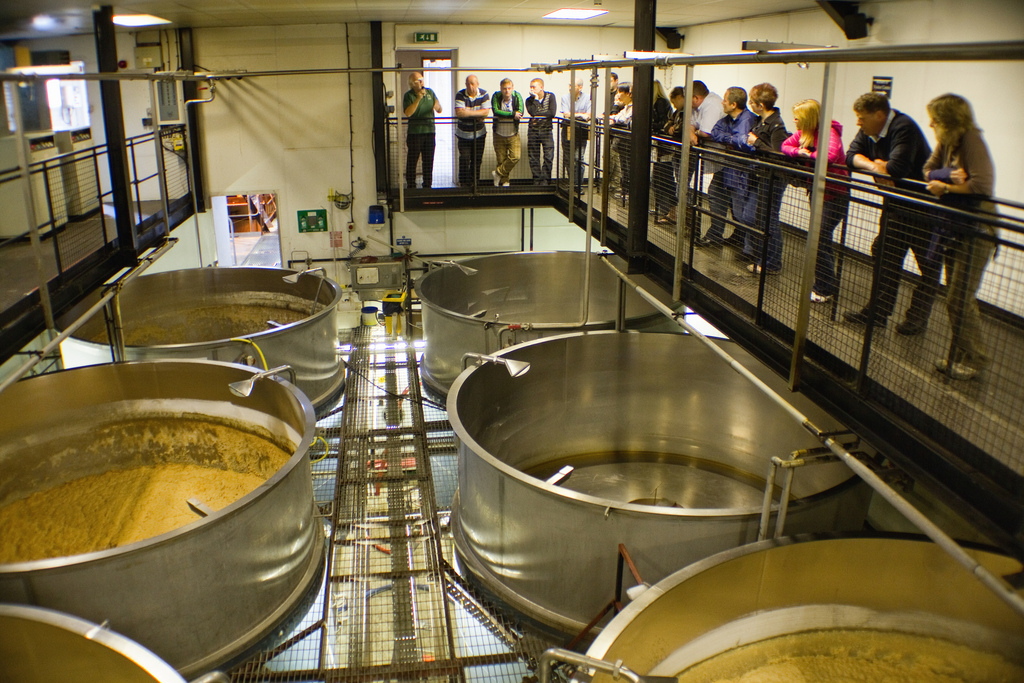
April 16, 2015, by Brigitte Nerlich
Advanced fermenters
I recently dipped my blogging toe into the microbiome, lured there by Jon Turney’s book I, Superorganism. A few days ago, while trying to find an old email on a completely unrelated topic, I came across a comment by Denis Noble that he had sent me when we were corresponding about the microbiome in around 2008. He said: “I was amused to see Nicholson proposing that we are ‘advanced fermenters’”. That made me think. Are we just advanced fermenters and what does that mean?
I, advanced fermenter
When I tried to find the article by Nicholson et al. on gut microorganisms again (which turned out to be behind a pay-wall here at the University), I stumbled upon a paper by Maureen O’Malley. Some of what she wrote about the microbiome project and the human genome project is worth repeating: “Microbiomic research encourages the conceptualization of any multicellular organism as a composite of all three domains (bacteria, archaea and eukaryotes) and the fundamental genome as a metagenome of microbial and other DNA …. It is even suggested that humans and other animals could be regarded as ‘advanced fermenters’, the main role of which is to house, nourish and assist the reproduction of an enormous array of microbes (Nicholson et al. 2005). The original human genome sequencing projects were, from this perspective, about only a tiny and unrepresentative complement of our genes, but this limitation is rapidly being remedied by the human microbiome project ….”.
So what about advanced fermenters? After finally getting access to the article, I can now tell you what Nicholson, Holmes and Wilson, rather than other people, said in the 2005 paper: “The average human should be regarded as a complex ecology or ‘super-organism‘ rather than an individual. Indeed, it is tempting to suggest that the role of the host is to function as an advanced fermenter, carefully designed to maximize the productivity of the microbiome.” (p. 7, bold by me).
Selfish genes and selfish microbes
When thinking about this and Denis Noble’s work, especially his 2006 book The Music of Life, which tries to provide a counter-point to Richard Dawkins’ work on the ‘selfish gene’, I began to wonder … Are we ‘just’ the products and replication vehicles for selfish genes or are we ‘just’ advanced fermenters, the products and replication vehicles of ‘selfish microbes’? What does this make us? Are these the only two choices? Where would ‘we’ be located in either scenario? I am not totally sure!
And what about synthetic biology in this context, or microbial engineering? Are we perhaps on the way to becoming ‘just’ our own ‘biofactories’? Ok, this is a bit of a stretch! At the moment we are just trying to build so-called biofactories that work for us; indeed here at Nottingham, at the BBSRC/EPSRC funded Synthetic Biology Research Centre, we are synthetically engineering microorganisms to work as what one might call ‘advanced fermenters’ in order to produce useful molecules, useful for us and the planet!
So, thinking about the microbiome makes us think about our’selves’ in new ways and, as we shall see, it also makes us think about the world we live ‘in’ in new and quite surprising ways. I found that out, yet again, when trying to find the Nicholson article and reading another paper by John Dupré and Maureen O’Malley on metagenomics and biological ontology from 2007. I’ll just quote the questions they ask, which, eight years later are becoming even more urgent.
Ocean warming, melting ice-caps and antibiotic resistance
“It is becoming increasingly clear that a range of fundamental questions about life on this planet will find their answers only with advances in system-based understandings of microbial communities in global environments … . Will warming oceans disturb the world’s primary oxygen producers, the marine cyanobacteria Prochlorococcus and endanger oxygen dependent lifeforms (everything apart from prokaryotes)? Will the thawing of the polar icecaps lead to intensified global warming as dormant methanogenic prokaryotes become active and release more methane (a contributor to global warming)? Will global changes in human habitat and diet modify the microbiome in human bodies and have significant health consequences? Will antibiotics still be effective in twenty years or will we see the return of high fatality rates from infections such as tuberculosis and pneumonia with the worldwide circulation of antibiotic resistant genes in the microbial metacommunity?”
Antibiotic resistance in particular is becoming an urgent problem, as Nicholson et al. pointed out ten years ago: “Given the enormous biological success of our own species in terms of colonizing the planet, this has certainly been a success story for our microbiomes and parasites. One important realization must be that the reckless and largely uncontrolled use of antibiotics might not only change human society through the increased risks associated with multiple antibiotic resistance in pathogens but also through irreversibly altering the microbiome with which we have co-evolved.” (p. 7)
Life, talk to me about life!
Microbiomics, metagenomics, synthetic biology, microbial engineering…. These sciences and technologies are more important to life, the universe and everything than one might think! And they are worth thinking about!
If you want to know more about the future of microbiome research, you can read this recent article by Jon Turney!
PS: And, of course, this post could also have been about rabbits, cows, horses, and pandas, but it’s not.
[This Making Science Public post also contributes to my social science work on the BBSRC/EPSRC funded Synthetic Biology Research Centre.]
Image: Black Sheep Brewery Tour (Wikimedia Commons)
No comments yet, fill out a comment to be the first

Leave a Reply